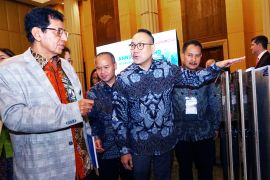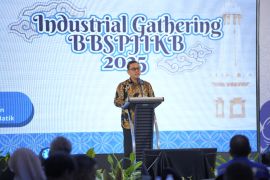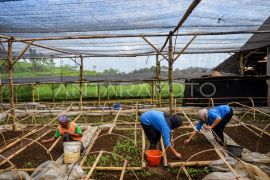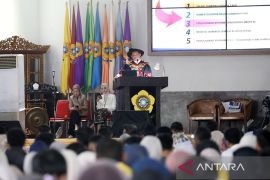"We are accelerating the implementation of standardization in the ceramic and non-metallic mineral industries to increase productivity and competitiveness," head of the ministry's Industrial Services Standardization and Policy Agency (BSKJI), Andi Rizaldi, informed in a statement released here on Wednesday.
He said that the implementation of standardization is not only related to the Indonesian National Standards (SNI), but also to green industry standards and industrial technology specification standards.
Rizaldi explained that the strategy would play three important roles in increasing the competitiveness of the ceramic industry, including as a parameter for consistent quality of ceramic products, thereby ensuring that goods sold in the market meet high standards and can compete in the global market.
Furthermore, standardization is expected to boost innovations in terms of production technology and materials.
In addition, the standardization strategy could serve as a non-tariff barrier that provides a guarantee for imported ceramic products to meet the security, safety, and environmental health requirements set by the Indonesian government.
As per the BSKJI, the non-metallic mineral products (BGNL) industry sub-sector, which includes the ceramics industry, grew by a significant 9.17 percent in the fourth quarter of 2023.
The figure was higher compared to the first quarter of 2023, when a contraction of minus 2.1 percent was recorded.
The BSKJI head expressed the hope that the standardization would boost the contribution of the ceramic sector to the improvement of the national economy.
Related news: Ministry to prevent waves of imported ceramics in Indonesia
Related news: Over 61% of Bali`s ceramic products exported to Singapore
Related news: Malaysia halts safeguard probe into Indonesian ceramic products
Translator: Ahmad Muzdaffar, Raka Adji
Editor: Azis Kurmala
Copyright © ANTARA 2024












